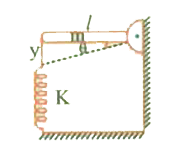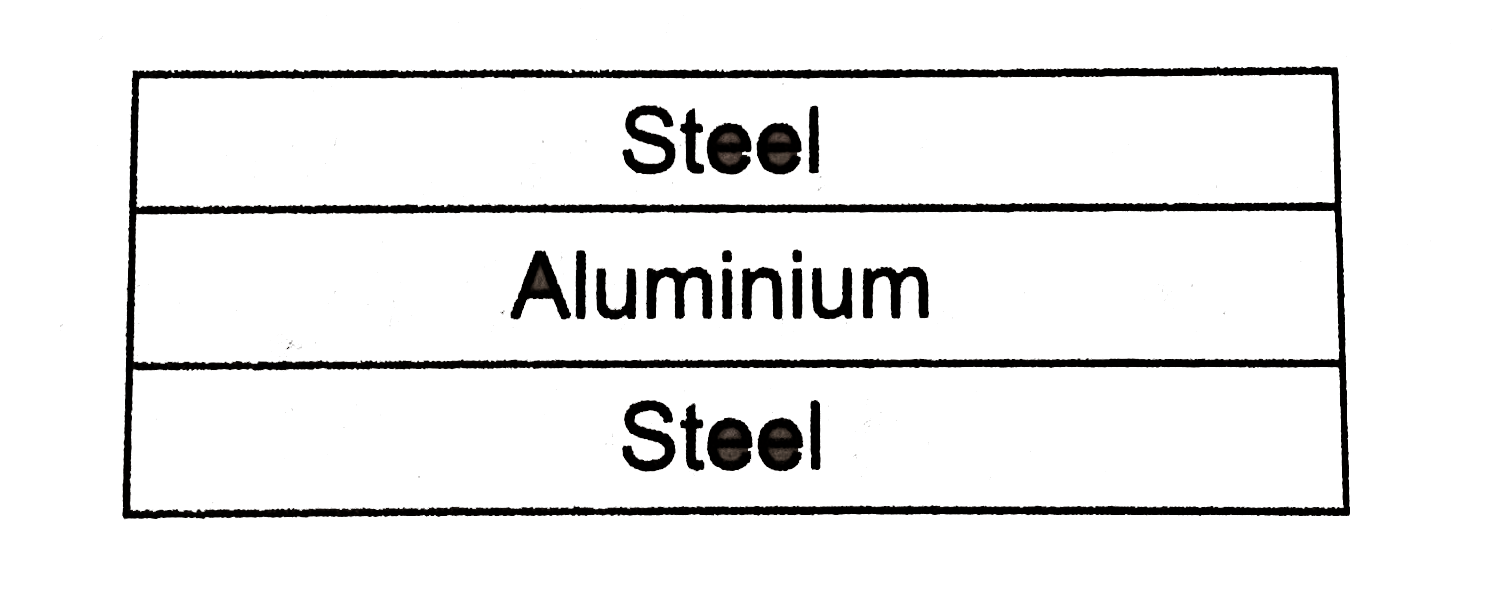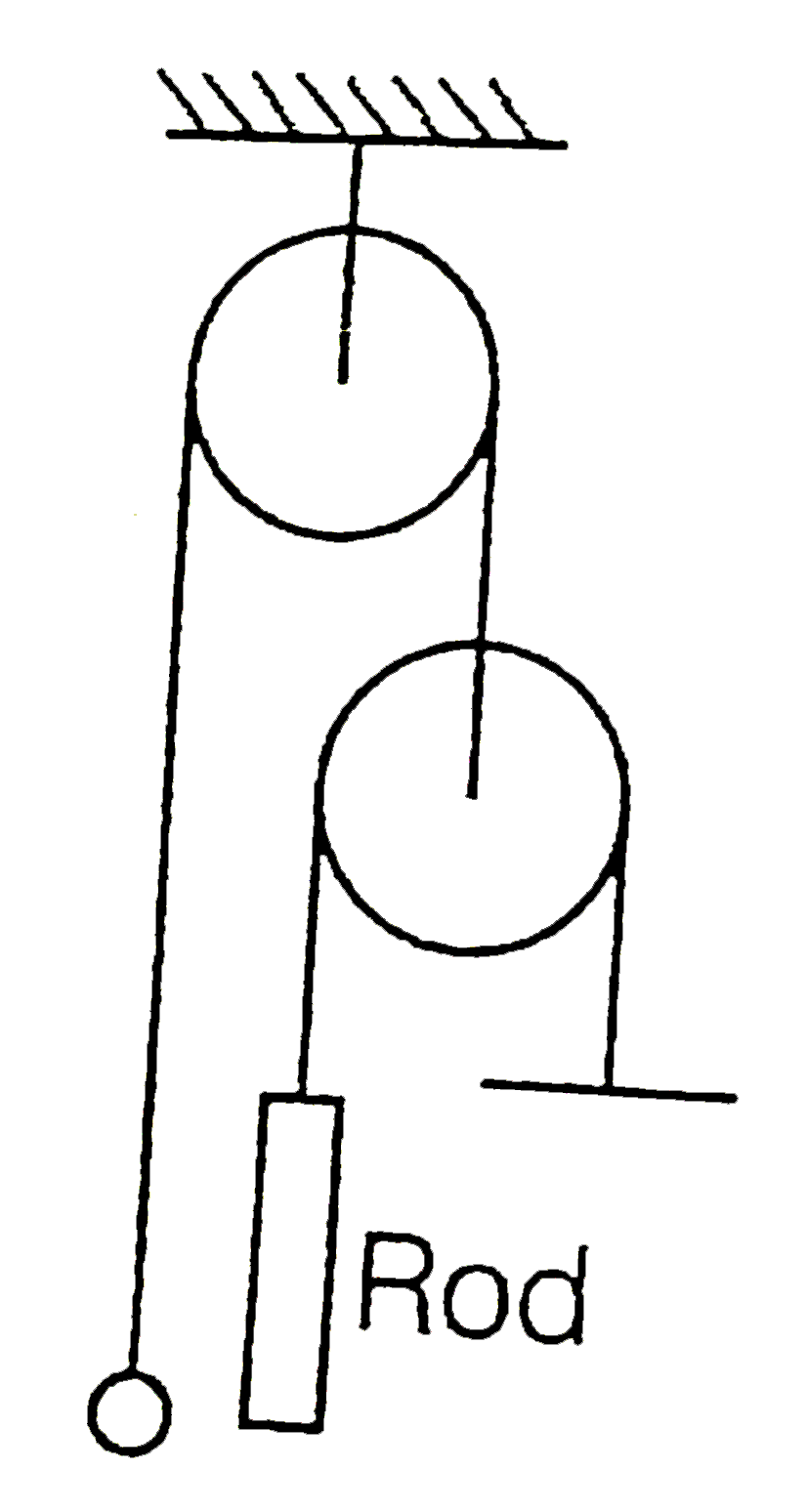Two children are at opposite ends of an aluminium rod. One strikes the end of the rod with a stone. Find the ratio of times taken by the sound wave in air and in aluminium to reach the second child.
Velocity of sound in air= 346 m/s
Velocity of sound wwave in aluminium= 6420 m/s
Let length of rode be 1
Time taken for sound wave in air, t1= 1 / Velocity in air
Time taken for sound wave in Aluminium, t2= 1 / Velocity in aluminium
Therefore, t1/t2 = Velocity in aluminium / Velocity in air = 6420 / 346 = 18.55:1
Topper's Solved these Questions
Similar Questions
Two children are at opposite ends of an aluminium rod. One strikes the end of rod with a stone. Find the ratio of times taken by sound wave in air and in aluminium to reach the second child (Given: Speed of sound in air =346m/s, Speed of sound in aluminium =6420m/s).
View SolutionThe end of the rod which is connected to the spring is pushed down and released. Find time period of oscillation of the rod ?
 View Solution
View Solution
Knowledge Check
- Question 1 - Select One
If Young's modulus of the material of a rod is Y and density is ρ then time taken by sound wave to travel l length from bottom is
Al√ρYBl√YρC1l√YρD1l√ρY - Question 2 - Select One
Two sounds are heard at the end of an iron rod 5 km long at an interval of 14 seconds, when a source of sound is placed at the other end of the rod. The velocity of sound in air is 330 m/s. the velocity of sound in iron is aproximately
A4348 m/sB1500 m/sC2200 m/sD330 m/s - Question 3 - Select One
Assume that the thermal conductivity of copper is twice that of aluminium and four times that of brass. Three metal rods made of copper, aluminium and brass are each 15 cm long and 2 cm in diameter. These rods are placed end to end, with aluminium between the other two. The free ends of the copper and brass rods are maintained at 100∘C and 0∘C respectively. The system is allowed to reach the steady state condition. Assume there is no loss of heat anywhere.
When steady state condition is reached everywhere, which of the following statement is true?ANo heat is transmitted across the copper aluminium or aluminium brass junctions.BMore heat is transmitted across the copper aluminium junction than across the aluminium brass junction.CMore heat is tranmitted across the aluminium brass junction than the copper aluminium junction.DEqual amount of heat is transmitted at the copper aluminium and aluminium brass junctions.
The ends of a rod of length l move on two mutually perpendicular lines. Find the locus of the point on the rod which divides it in the ratio 1 : 2.
View SolutionFour rods made up of glass, plastic, aluminium, an wood are covered with wax at one end. The other ends of these rods are inserted in a container containing hot water

The wax on which rod will melt first?View SolutionTwo steel rods and an aluminium rod of equal length l0 and equal cross section are joined rigidly at their ends as shown in the figure below. All the rods are in a state of zero tension at 00C. Find the length of the system when the temperature is raised to θ. Coefficient of linear expansion of aluminium and steel are αaandαs respectively. Young's modulus of aluminium is Ya and of steel is Ys.
steel
Aluminium
Steel
 View Solution
View SolutionIn the figure , mass of a ball is 95 times mass of the rod, Length of rod is 1m.The level of ball is same as rod level.Find out time taken by the ball to reach at upper end of rod.
 View Solution
View SolutionTwo rods, one of iron and the other of aluminium, are heated to the same temperature. Then,
View Solution

